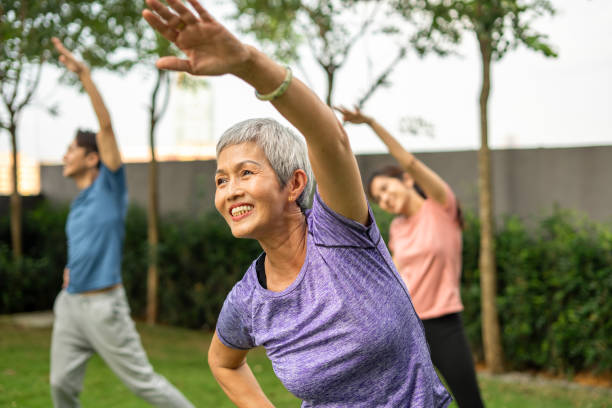As people age, it’s common to focus on maintaining physical strength, mobility, and overall health. Yet, one equally crucial aspect often overlooked is cognitive health. Exercise, traditionally associated with physical fitness, has emerged as a potent tool for boosting brain function, particularly in older adults. Research increasingly shows that regular physical activity can significantly enhance memory, sharpen focus, and even delay the onset of cognitive decline.
Contents
- 1 Understanding the Link Between Physical Activity and Brain Health
- 2 Memory Retention and Improved Learning Capacity
- 3 Exercise as a Preventative Measure Against Cognitive Decline
- 4 Mood Regulation and Stress Reduction
- 5 Social Engagement Through Group Activities
- 6 Creating a Sustainable Exercise Routine
- 7 Conclusion
Understanding the Link Between Physical Activity and Brain Health
Physical exercise benefits the brain in multiple ways. When the body is active, it increases blood flow to the brain, delivering oxygen and essential nutrients that support the growth of new neurons. This process, known as neurogenesis, is vital in preserving brain function as we age. Exercise also promotes the release of brain-derived neurotrophic factor (BDNF), a protein that fosters the growth and maintenance of brain cells.
Additionally, physical activity stimulates the production of hormones that enhance the brain’s plasticity—the ability to form and reorganize synaptic connections. This is particularly important for older adults because it helps retain memory and learning capacity even in later years.
Memory Retention and Improved Learning Capacity
One of the most well-documented cognitive benefits of exercise for older adults is the improvement in memory retention. Activities such as brisk walking, swimming, and cycling have been shown to increase the size of the hippocampus, the brain region responsible for memory and learning. This counters the natural shrinkage of the hippocampus that occurs with age and is linked to conditions such as dementia and Alzheimer’s disease.
Moreover, regular physical activity can improve working memory and executive function, which involves tasks such as problem-solving, planning, and multitasking. Older adults who engage in consistent exercise routines often display sharper thinking skills and a reduced risk of cognitive impairments.
Exercise as a Preventative Measure Against Cognitive Decline
Cognitive decline is not an inevitable part of aging. Studies have demonstrated that regular physical exercise can slow or even prevent the onset of dementia and other forms of cognitive decline. For example, aerobic exercises like walking and dancing increase cardiovascular health, which is directly connected to brain health. A healthier heart pumps more efficiently, ensuring the brain receives adequate blood flow and reducing the risk of vascular dementia.
Strength training also plays a role in cognitive preservation. Engaging in resistance exercises two to three times a week can improve attention span, memory, and problem-solving skills. This is because strength training impacts hormone levels, including insulin growth factor, which aids in brain cell repair and growth.
Mood Regulation and Stress Reduction

Exercise doesn’t just keep the body and mind sharp—it also helps regulate mood and reduce stress, which are important for cognitive health. Physical activity triggers the release of endorphins and other neurotransmitters like serotonin and dopamine, which improve mood and create a sense of well-being.
For older adults, this is particularly beneficial because depression and anxiety are known to accelerate cognitive decline. By incorporating regular exercise, seniors can alleviate symptoms of these mood disorders, thereby protecting their cognitive function. In this sense, exercise acts as a natural antidepressant, enhancing both mental health and cognitive resilience.
Social Engagement Through Group Activities
Many forms of exercise also offer social interaction, which adds another layer of cognitive benefit. Group classes like tai chi, yoga, or dance not only provide physical exertion but also stimulate mental engagement through socialization. Interacting with others during exercise can improve mood, provide mental stimulation, and enhance memory recall through conversation and shared experiences.
Socially engaging activities help combat loneliness and isolation, two factors that contribute to cognitive decline in older adults. By joining exercise groups, seniors can foster social connections while also reaping the cognitive rewards of physical activity.
Creating a Sustainable Exercise Routine
The key to leveraging the cognitive benefits of exercise is consistency. It’s not necessary to engage in intense workouts; even moderate activities performed regularly can yield significant benefits. The World Health Organization recommends that adults aged 65 and older engage in at least 150 minutes of moderate aerobic activity per week, combined with muscle-strengthening activities on two or more days.
Incorporating variety can also keep routines enjoyable and more effective. Combining aerobic exercises with strength training, balance exercises, and flexibility workouts ensures a comprehensive approach that supports both physical and cognitive health.
Older adults should consult with healthcare providers before starting any new exercise regimen to ensure safety and appropriateness based on individual health conditions. Personalized plans can maximize benefits while minimizing the risk of injury.
Conclusion
Exercise stands as a powerful, accessible tool to enhance cognitive health in older adults. Through improved memory, sharper thinking, mood regulation, and social engagement, regular physical activity can significantly improve quality of life and reduce the risk of cognitive decline.
As the global population continues to age, prioritizing physical activity as part of a holistic approach to health is more important than ever. By staying active, older adults not only preserve their physical independence but also nurture their mental acuity, ensuring they remain vibrant and engaged members of their communities.
